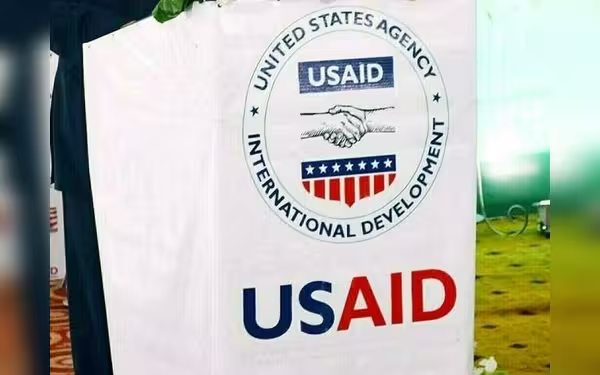Tuesday, July 2, 2024 03:41 PM
USAID Launches Clean Energy Initiative in Pakistan
- Revolutionizing rural communities with innovative clean energy solutions
- Integrating solar panels, swappable batteries, and electric three-wheelers into farmlands
- Collaborations between MNSAUM and LUMS to support farmers in implementing EFTN technologies
 Image Credits: brecorder
Image Credits: brecorderUSAID's Energy-Food-Transportation Nexus initiative in Pakistan aims to transform rural communities with clean energy solutions, enhancing agricultural productivity and economic growth.
USAID has recently launched a groundbreaking clean energy initiative in Pakistan known as the Energy-Food-Transportation Nexus (EFTN). This initiative aims to revolutionize rural communities by introducing innovative clean energy solutions that address pressing issues such as unreliable electricity, rising fuel costs, and harmful cooking methods prevalent in rural areas.
The EFTN initiative integrates a range of technologies including solar panels, swappable batteries, charging stations, and electric three-wheelers into farmlands. By leveraging these technologies, the initiative seeks to enhance farmers' productivity, provide clean energy for both farm and community needs, and ultimately contribute to the revitalization of rural economies and the improvement of national food security.
In a bid to explore economically viable applications, pilot testing of the EFTN initiative will be conducted in Multan. The applications of this initiative span across various sectors including water pumping, agricultural cold storage, medical facilities, transportation, and household electricity.
Moreover, to support farmers in implementing and expanding EFTN technologies, collaborations between MNSAUM and LUMS have been established. This initiative is part of the USAID Power Sector Improvement Activity, which aims to assist Pakistan in transitioning to a competitive power market and increasing the share of renewable energy to 60% by 2030.
In conclusion, the Energy-Food-Transportation Nexus initiative holds significant promise in transforming rural communities in Pakistan by providing sustainable and clean energy solutions. Through strategic partnerships and innovative technologies, this initiative not only addresses critical energy challenges but also paves the way for enhanced agricultural productivity and economic growth in rural areas.













